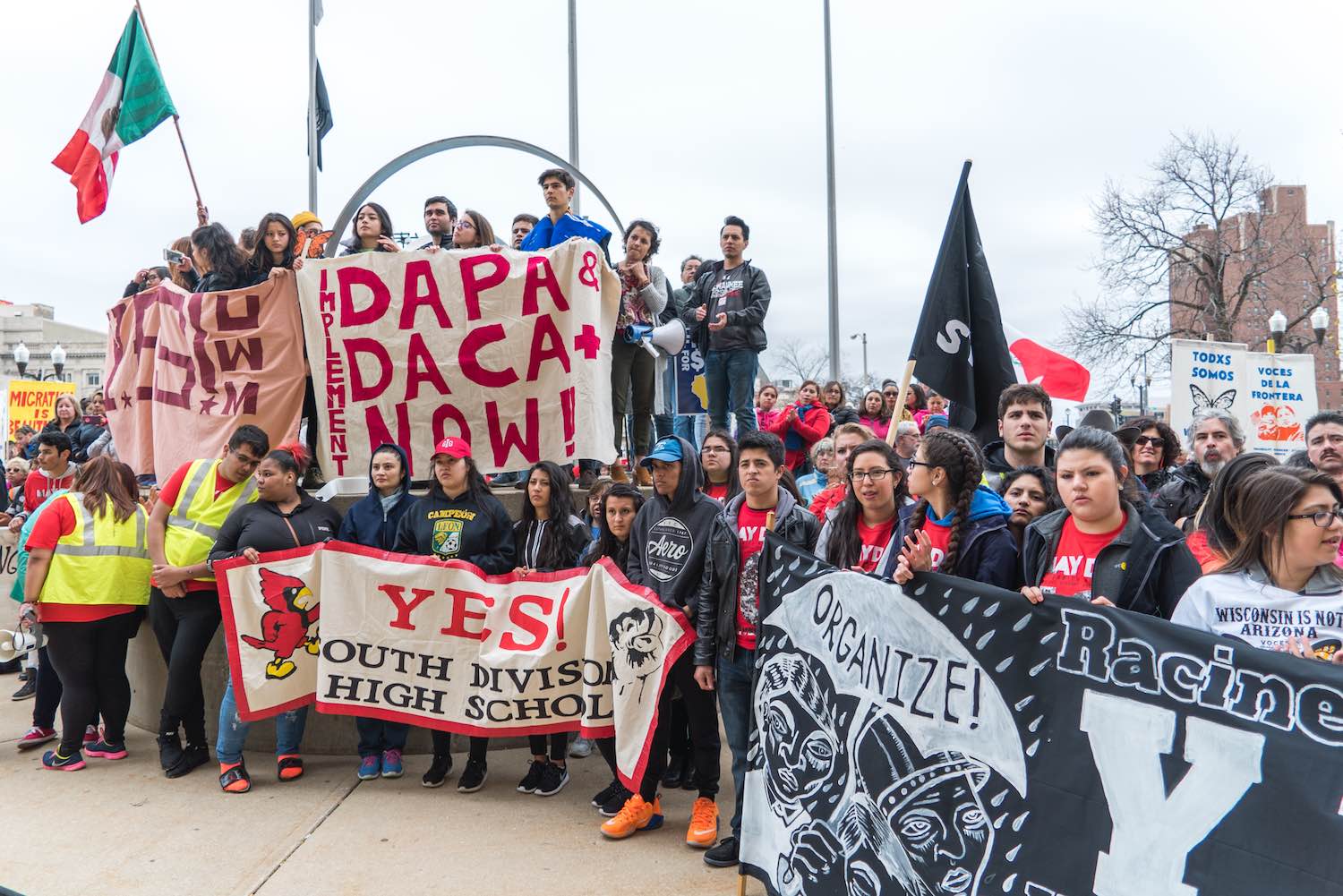“Texas is the national testing ground for bad public policy,” the journalist Molly Ivins used to say.
It was a Texas attorney general, Gregg Abbott, who sued in federal court in Brownsville, Texas, challenging Barack Obama’s 2014 executive memorandum that attempted to provide temporary legal status for undocumented parents of children born in the United States. Twenty-five other Republican state attorneys general joined Abbott in the lawsuit.
Abbott, currently in the media spotlight because floodwaters created by Hurricane Harvey have inundated much of the city of Houston, used to brag that his job entailed “going to the office in the morning, suing the federal government, and going home in the afternoon.” He prevailed in Brownsville, blocking the implementation of Obama’s program, thus denying legal status to some 4 million undocumented residents of the United States. Their children might be citizens, or legal residents, but Abbott’s lawsuit ensured that they continue to live in the shadows.
Since filing suit against the Deferred Action for Parents of Americans program (DAPA), Abbott was elected governor, and has moved further to the right, out of both conviction and a legitimate concern that his lieutenant governor, an evangelical extremist not unlike Vice President Mike Pence, will challenge him in a primary.
Abbott’s successor in the elected AG’s office is Ken Paxton, perhaps as extreme as Abbott, if not as bright and articulate, and currently under indictment for securities fraud.
In the footsteps of Abbott, Paxton is now leading a group of Republican state attorneys general in a lawsuit in the same Brownsville federal court, this time attempting to overturn a widely popular Obama executive action that currently defers the deportation of 886,814 young, undocumented residents, allowing them to obtain work permits and driver’s licenses, after paying a $495 fee and passing a background check.
It’s an odd designation, applicants are not granted “legal residence” per se, but rather allowed certain privileges while their deportation is deferred for two years, after which they can reapply to renew their Deferred Action for Childhood Arrivals (DACA) status. DACA status provides no path to citizenship, nor can people granted DACA status receive any federal financial benefits, such as Social Security, college financial aid, or food stamps.
Polling has found that 73 percent of Trump voters support the DACA residents, known as “Dreamers,” 95 percent of whom are either attending school or working.
But Attorney General Jeff Sessions, an implacable opponent of immigration reform while he was in the Senate, appears to be at least supportive of Paxton’s lawsuit, telling “Fox and Friends” hosts: “I like that our states and localities are holding the federal government to account, expecting us to do what’s our responsibility to the state and locals, and that’s to enforce the law.”
Easy to confuse, two similar acronyms for two Obama programs for undocumented immigrants, DACA for children; and DAPA, which has been suspended while tied up in court, for parents. At least it was suspended until Secretary of Homeland Security John Kelly rescinded it in mid-June, months before becoming Trump’s Chief of Staff.
For Paxton, rescinding DAPA, which was never implemented because it was tied up in court, wasn’t enough. On June 27, Paxton wrote to Sessions, demanding that he also order the Secretary of Homeland Security to end DACA.
Paxton warned Sessions that if the administration fails to issue a memorandum rescinding DACA by September 5, he will amend the lawsuit that successfully blocked DAPA and ask the same federal court to kill DACA.
Kill is not a legal term, but Paxton writes that unless the Trump administration rescinds Obama’s DACA order, he will ask the court for a ruling that lets the program die: “We respectfully ask the Secretary of Homeland Security to phase out the DACA program.…Specifically…not renew or issue any new DACA or Expanded DACA permits in the future.” If that request is not met, Paxton will go to court.
The suit Paxton intends to amend is sitting in the courtroom of Judge Andrew S. Hanen, whose animus toward undocumented immigrants is of record. As we reported in February 2015, Hanen was the author of a 2015 legal opinion in which he ruled on the enforcement authority of a federal agency, then went on to write 50 superfluous pages of dicta critical of the nation’s undocumented population.
A few examples:
“In 1992, the Attorney General estimated that the country’s immigrant population was as low as three million individuals. Today, California alone is said to have at least that many illegal aliens residing within its borders.”
“Evidence shows that Texas spends $9,473 to educate each illegal alien child … Texas also complains of the millions of dollars it must spend each year in providing uncompensated health care for these increasing numbers of undocumented workers.”
“This influx, for example, is causing the States to experience severe law enforcement problems … And in [Arizona’s] most populous county, these aliens are responsible for disproportionate share of serious crime.”
There is more in the public record that illustrates Hanen’s anti-immigrant bias.
Abbott was aware of Hanen’s hostile disposition toward undocumented immigrants when he carefully steered his 2015 DAPA lawsuit into his Brownsville courtroom. Now, Paxton will be trying his DACA case on the same playing field.
If Paxton goes ahead with the lawsuit, it will be left to Jeff Sessions to put together a defense for the 886,814 Dreamers whose temporary legal status Paxton is determined to end. After all, Paxton and his fellow attorneys general are suing Sessions’ client: the federal government.
On the campaign trail, Trump promised to rescind DACA, but he has been ambivalent since taking office, suggesting that children shouldn’t be held responsible for their parents’ decision to bring them into the country.
But all this might be beyond Trump’s control, unless he requests Sessions to make the DACA suit go away, as he requested him to stop the criminal prosecution of Arizona Sheriff Joe Arpaio. He failed with Arpaio and had to resort to a pardon. And his odds were better in Arizona, where the federal government was the prosecution in a criminal case, than in Texas, where it is a defendant in a civil action.
Beyond Hanen’s courtroom is the extremely conservative Fifth Circuit, never a friendly forum for undocumented residents of the country, and a conservative Supreme Court likely to be hostile to Obama-era executive orders and undocumented residents in general.
Perhaps this ends up a win-win proposition for Trump. He directs his Secretary of Homeland Security to kill the program. Or Paxton and his cohorts kill it in a Texas courtroom. Either way, a campaign promise is fulfilled. And a decision that at the moment appears inevitable forces almost 900,000 Dreamers back to a life in the shadows.
It all began in a courtroom in Texas.
Lou Dubose is The Washington Spectator’s Senior Political Writer.







0 Comments